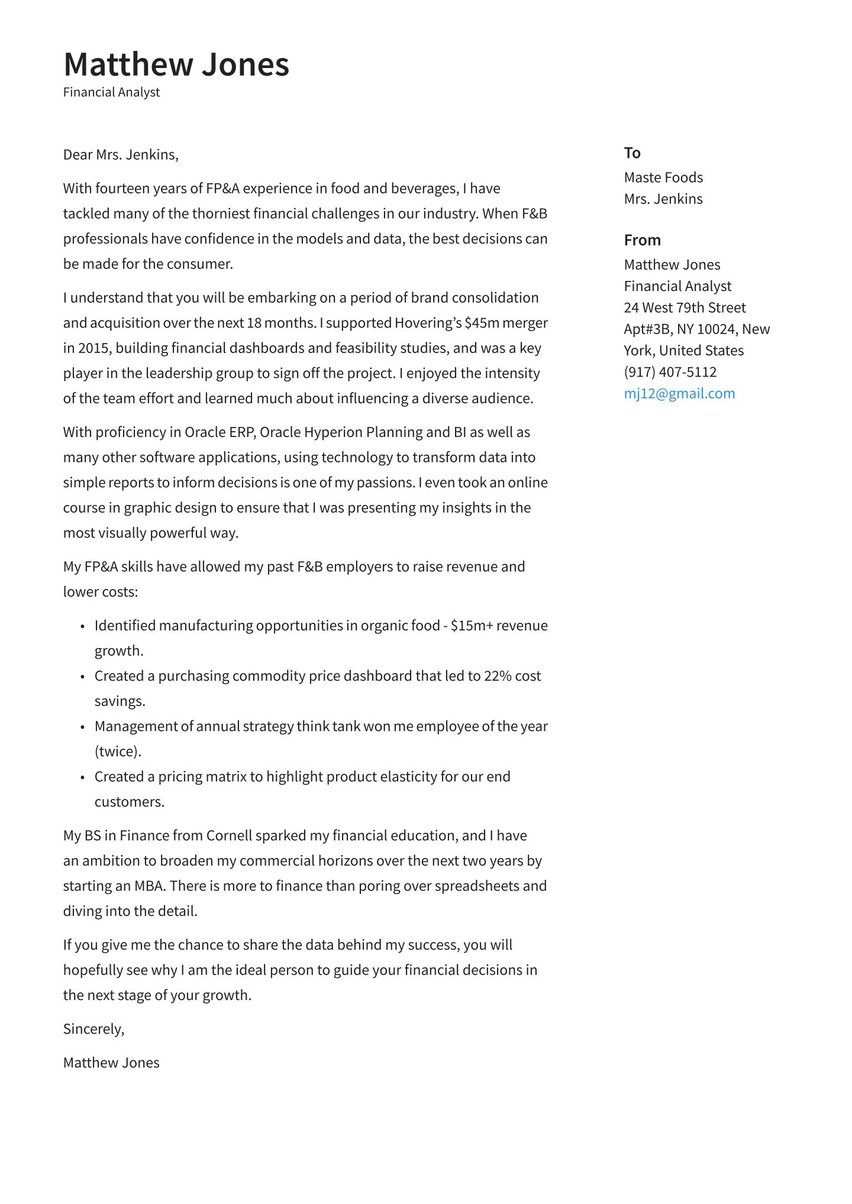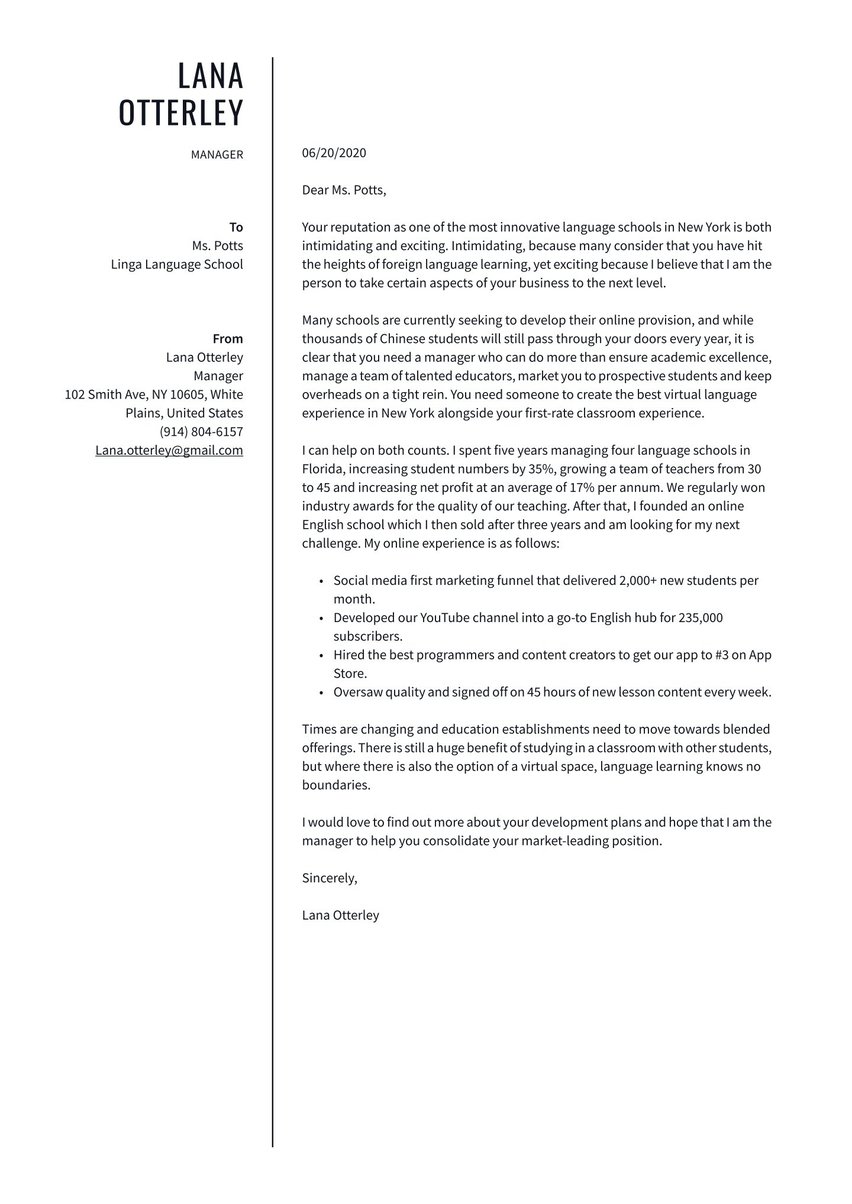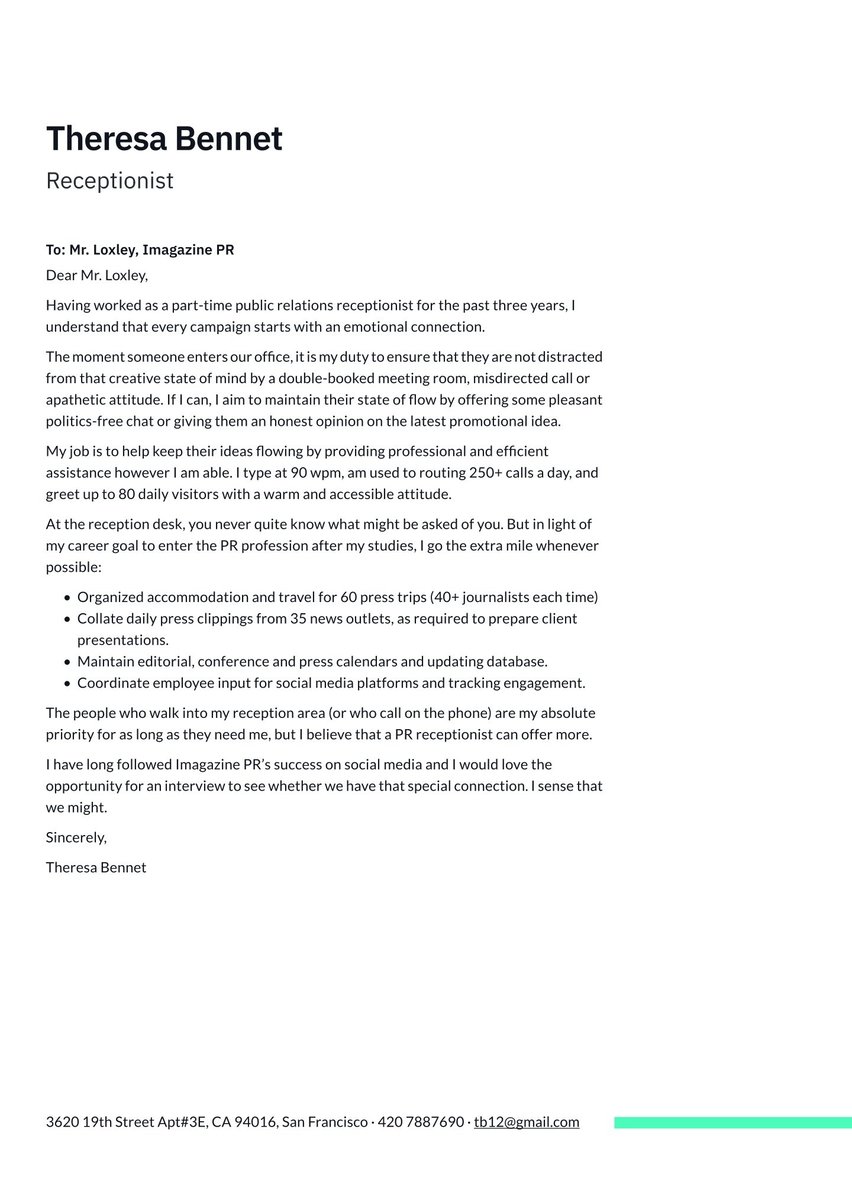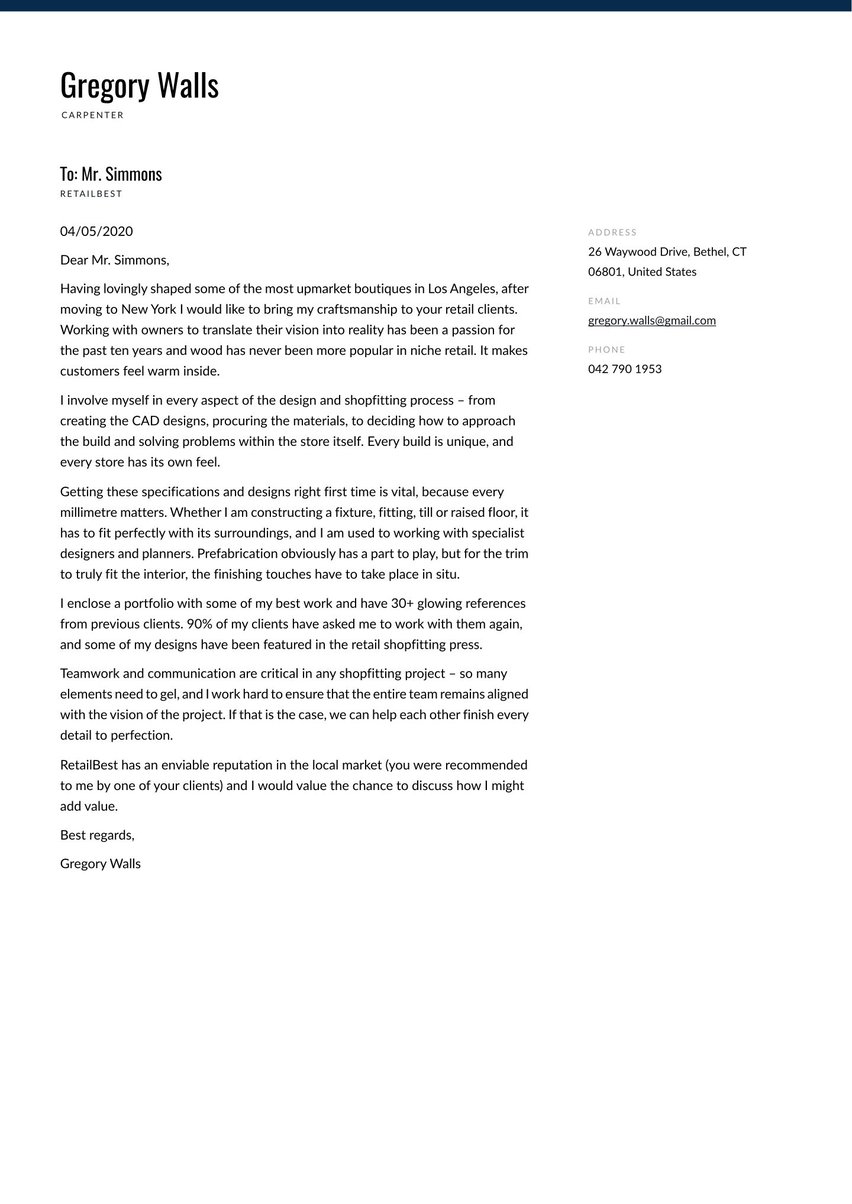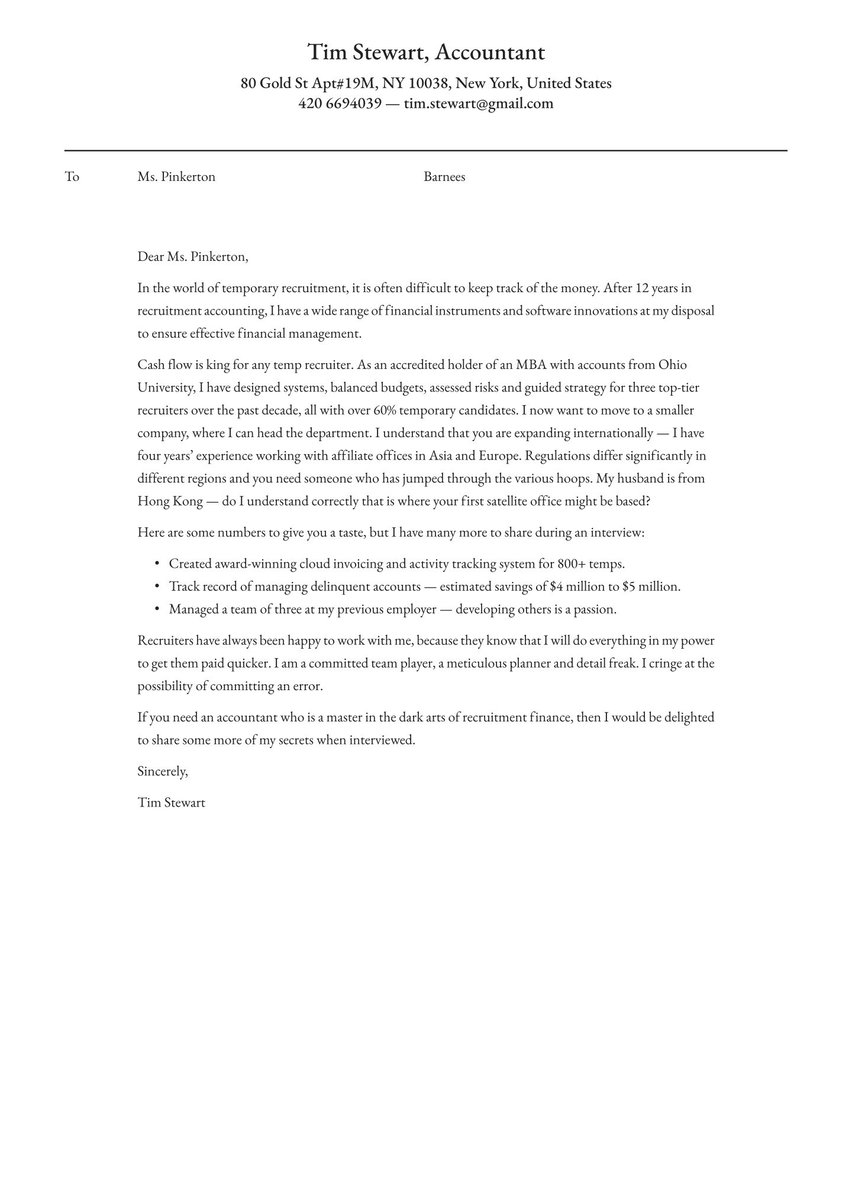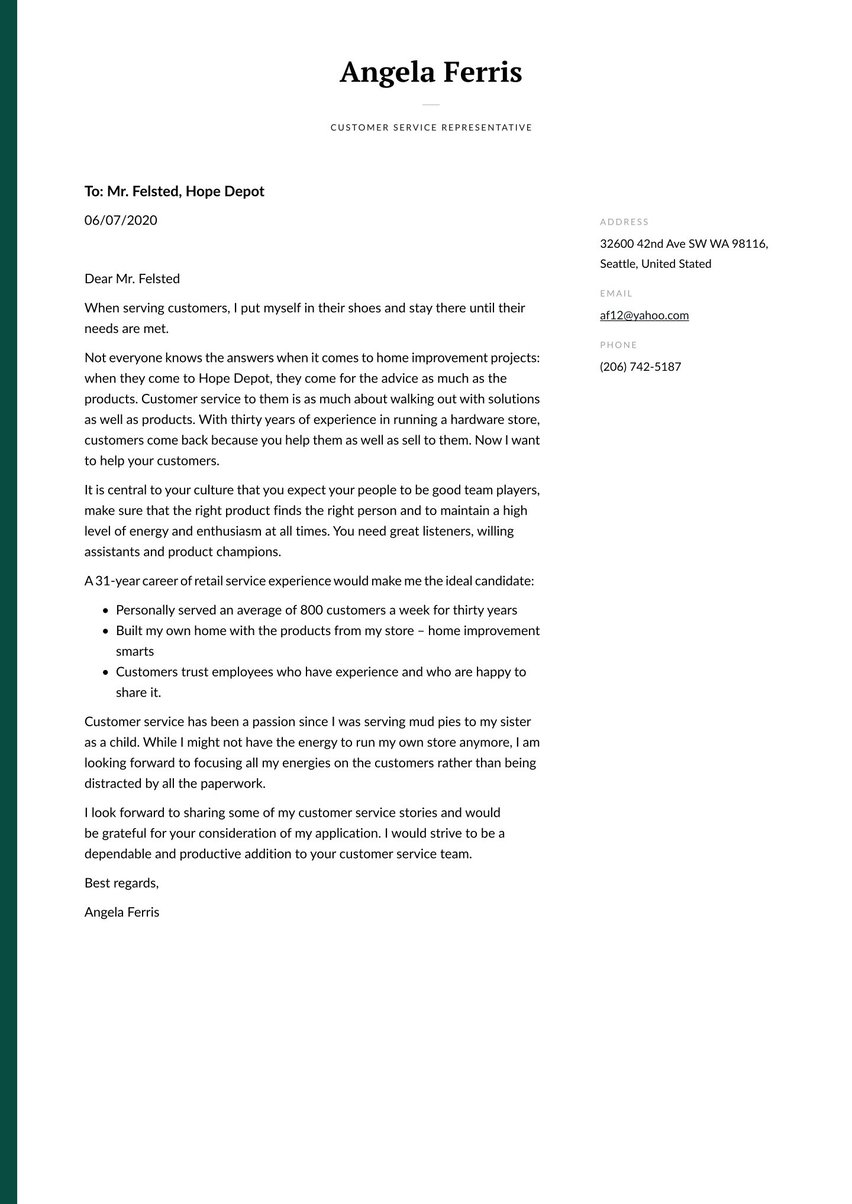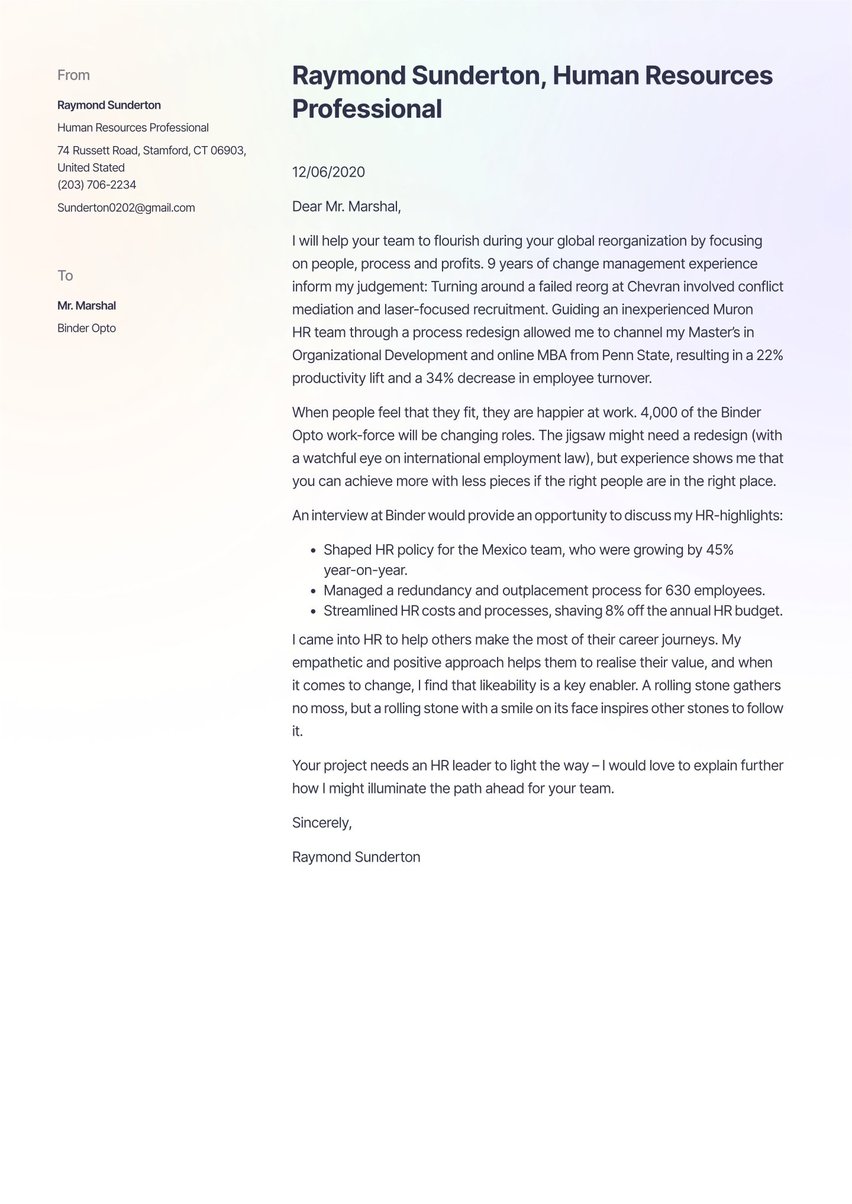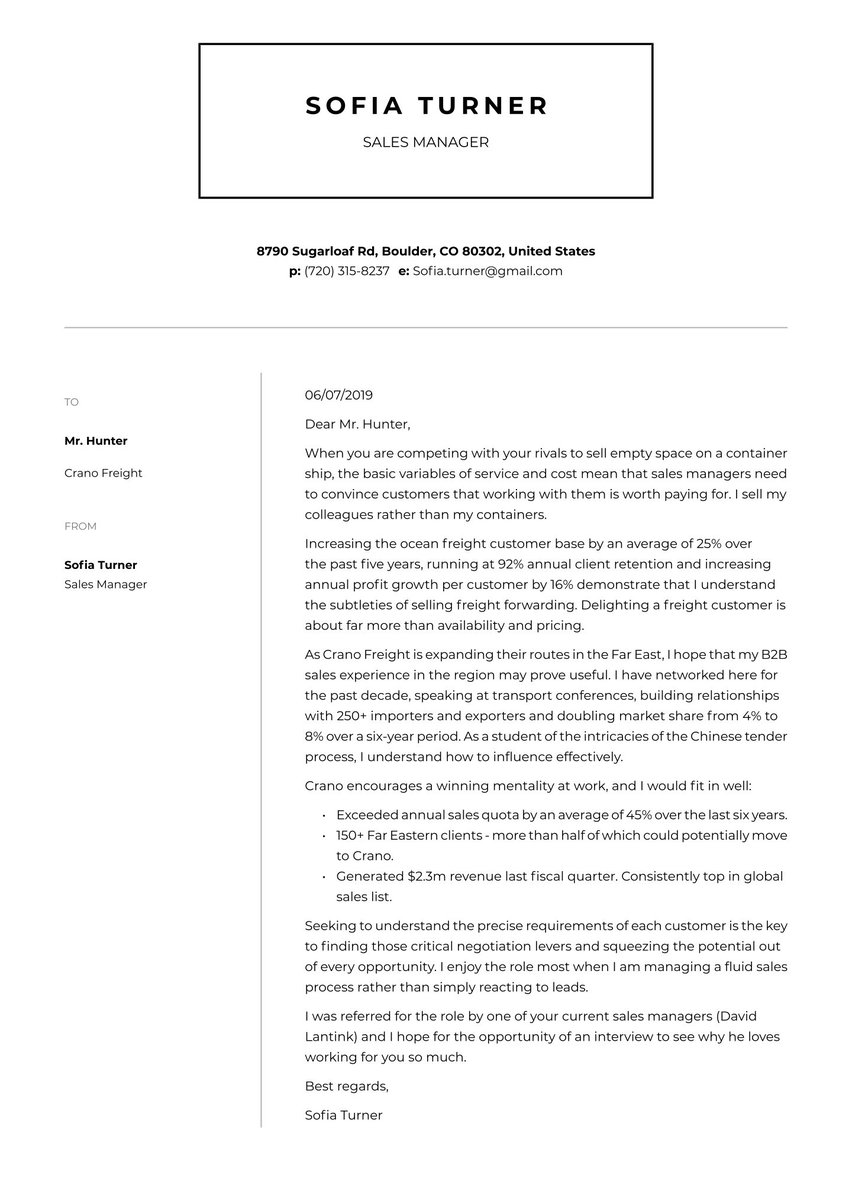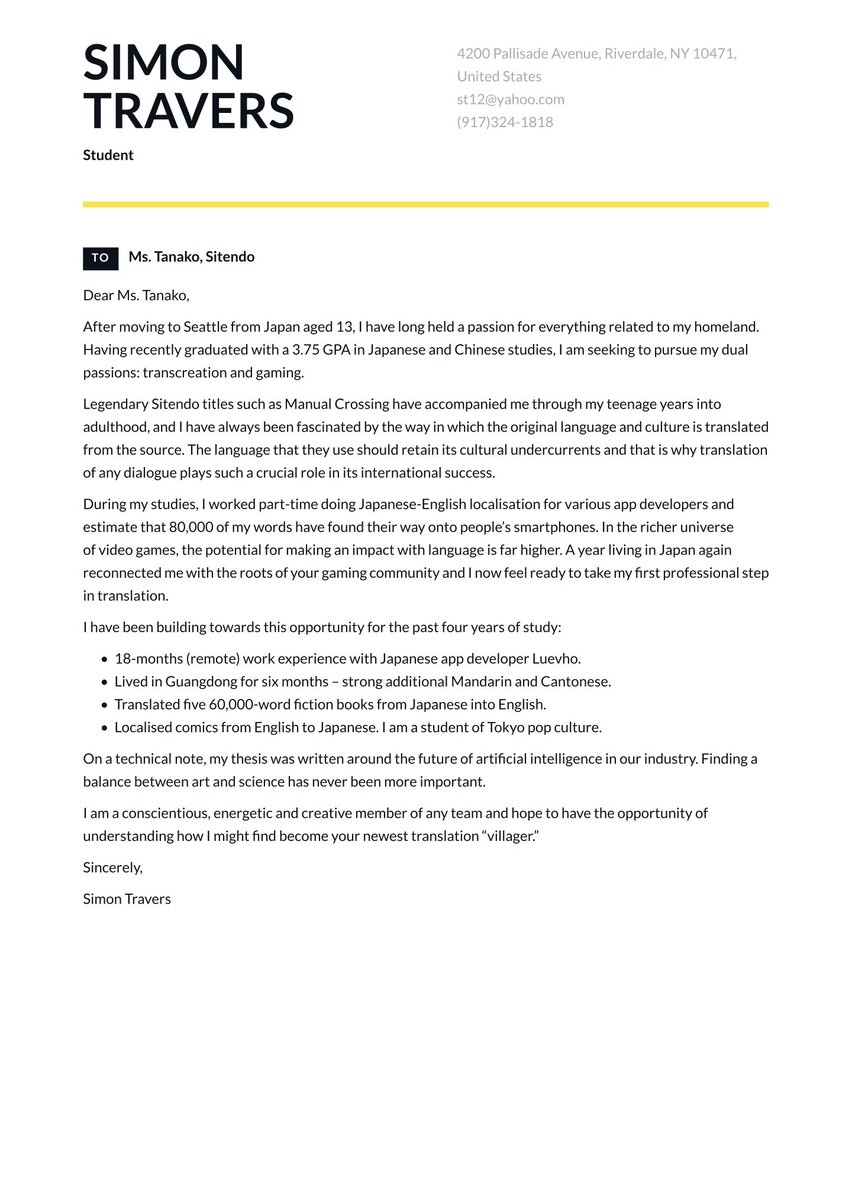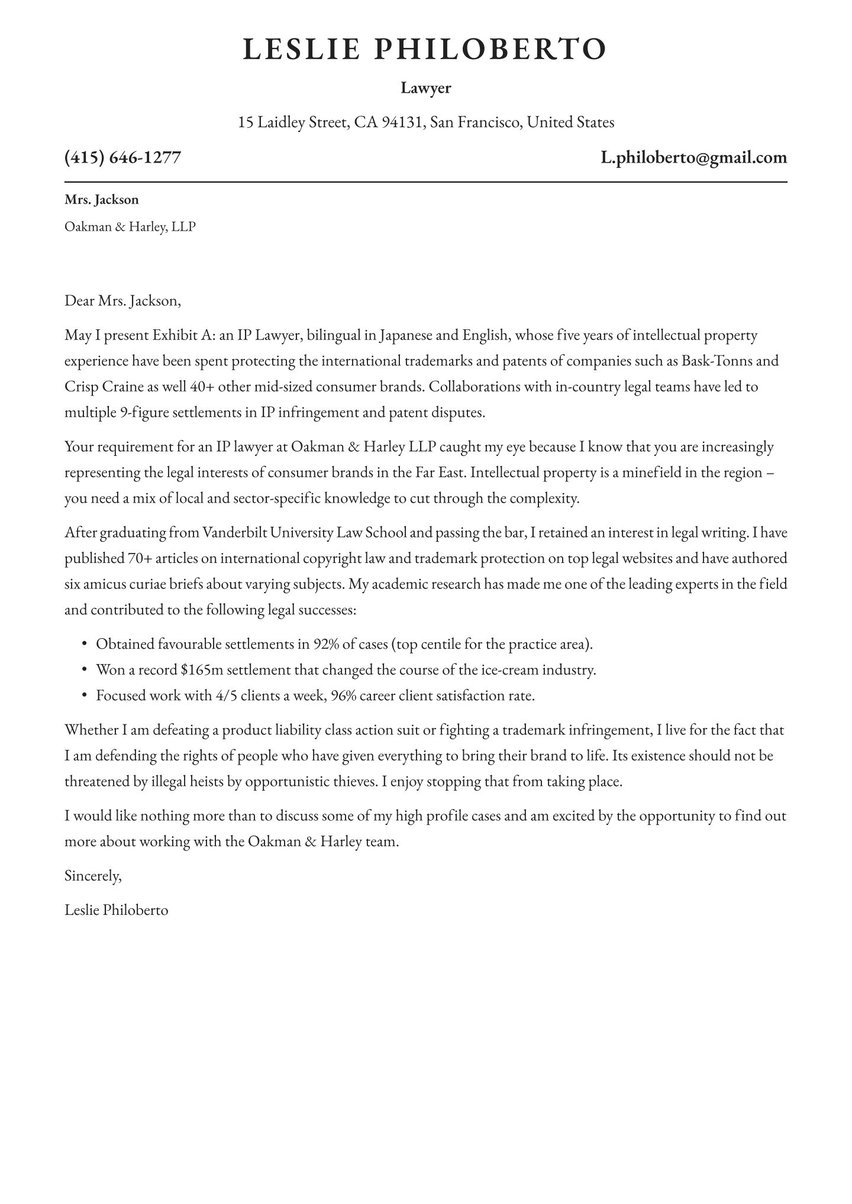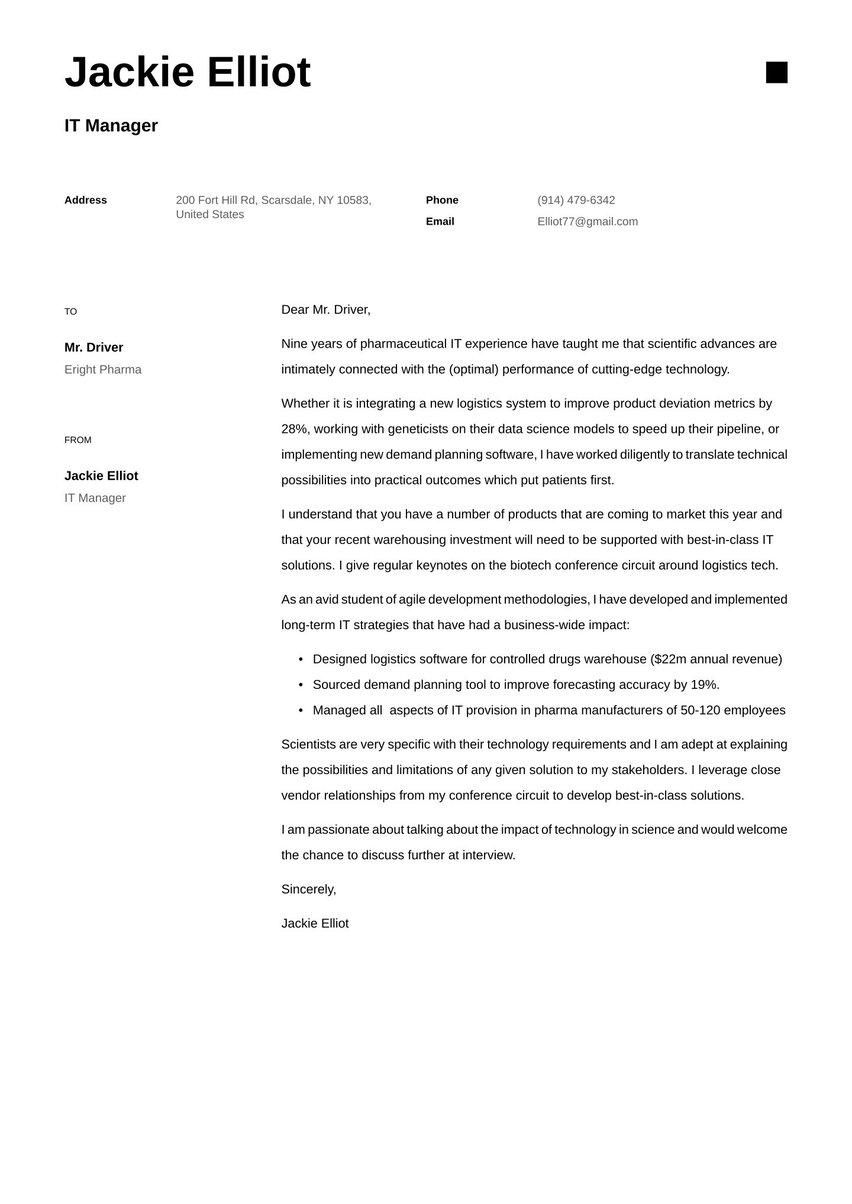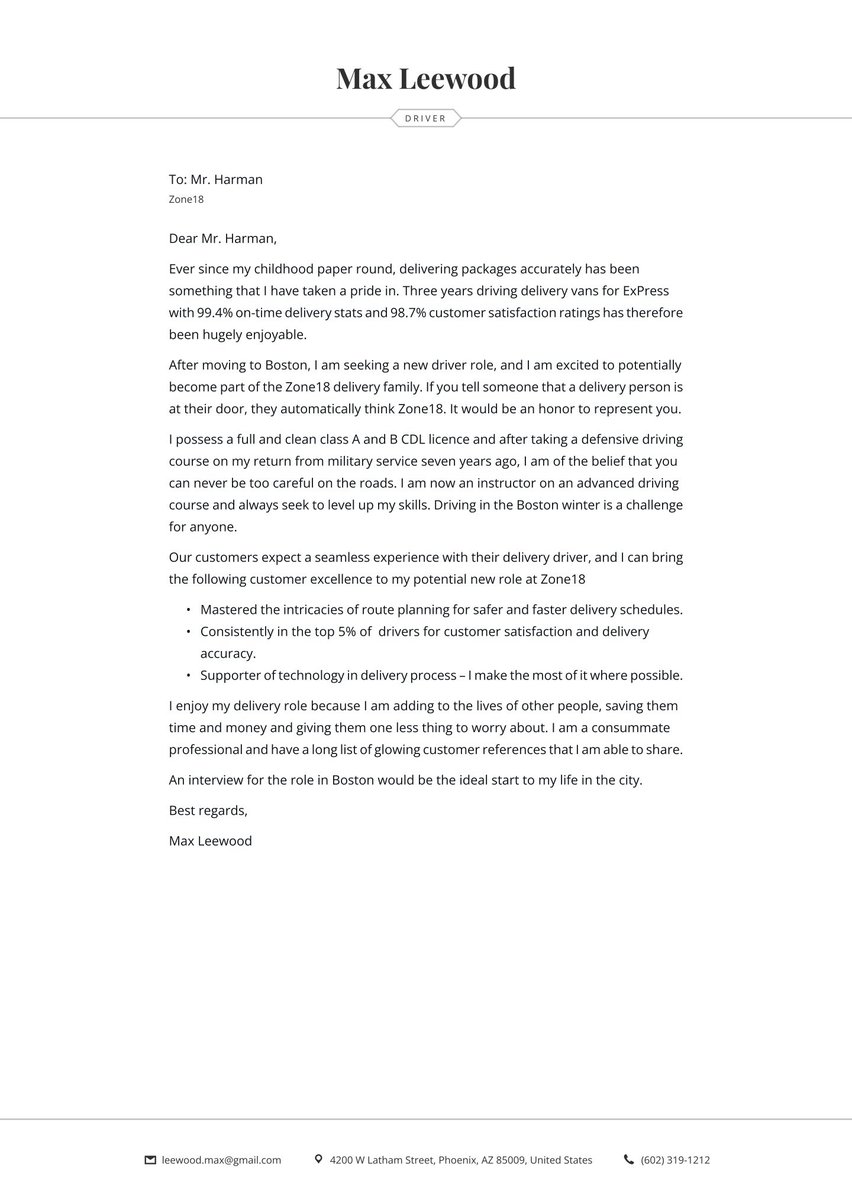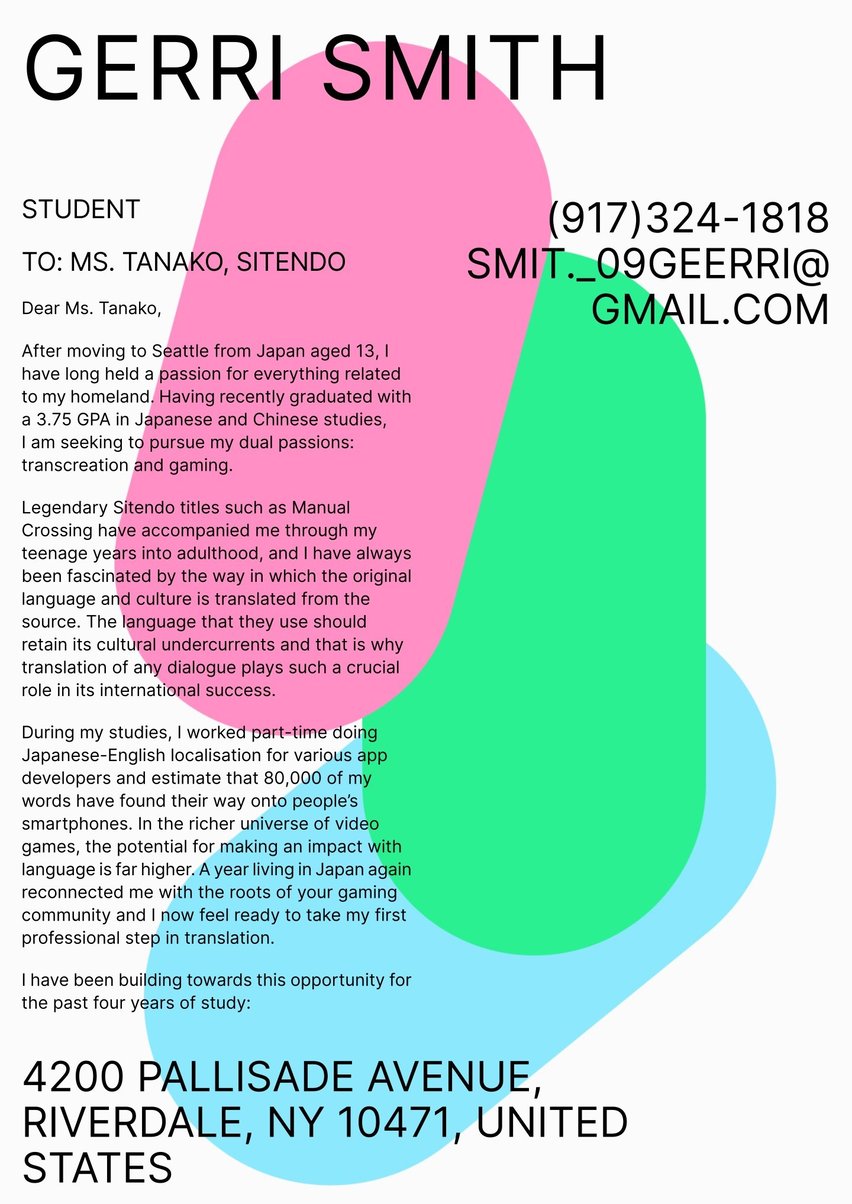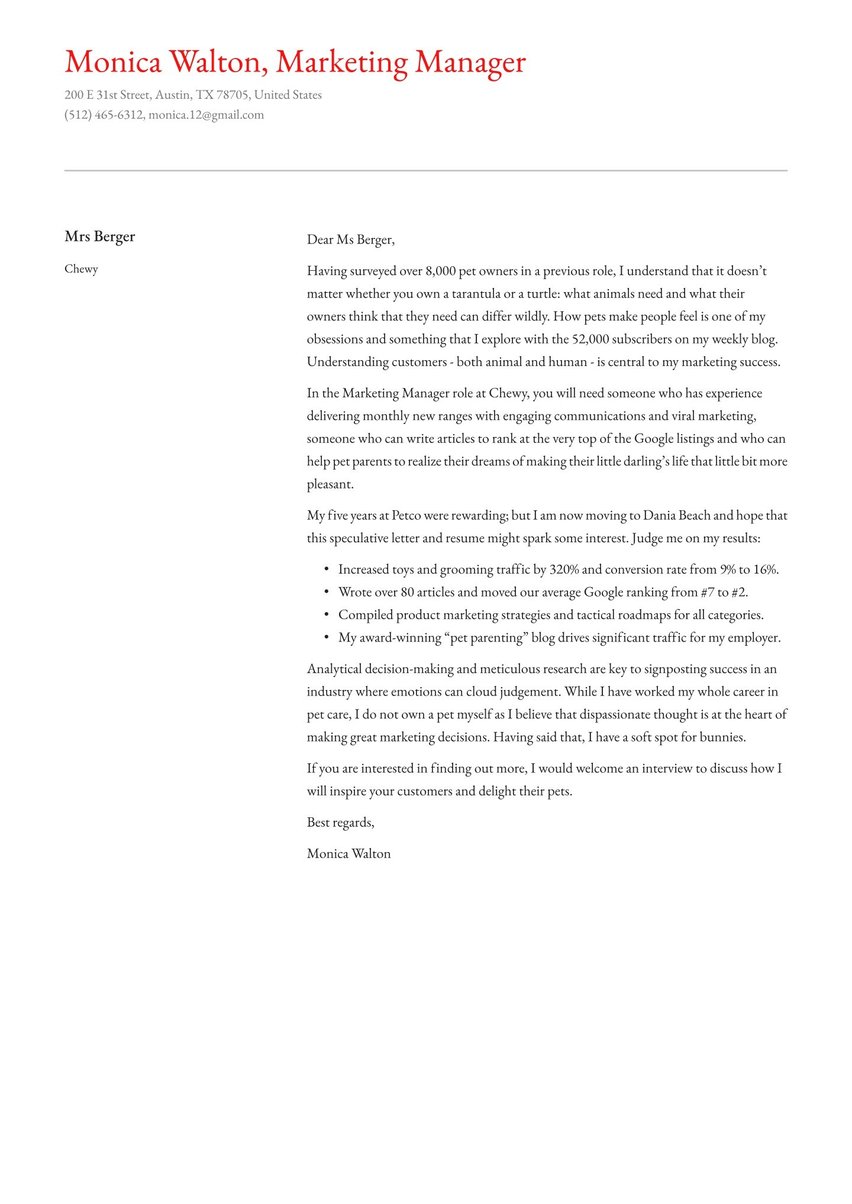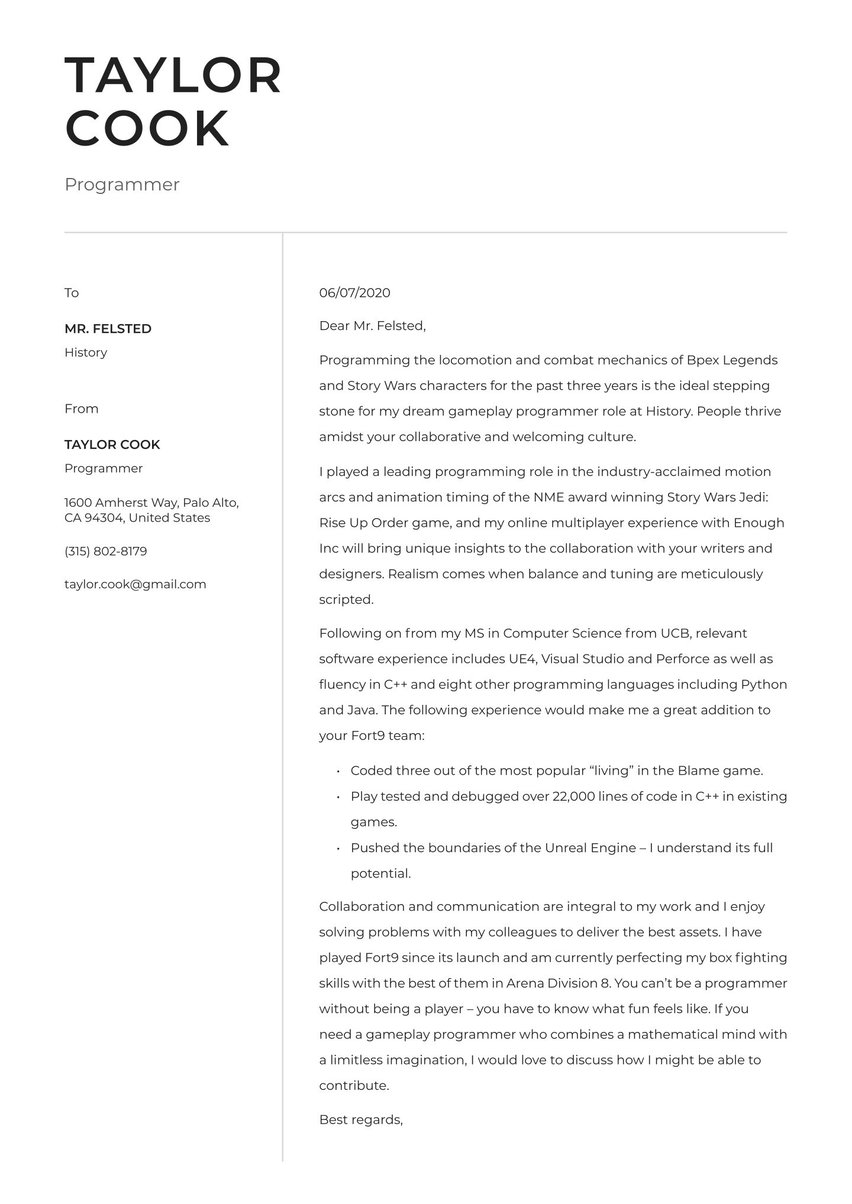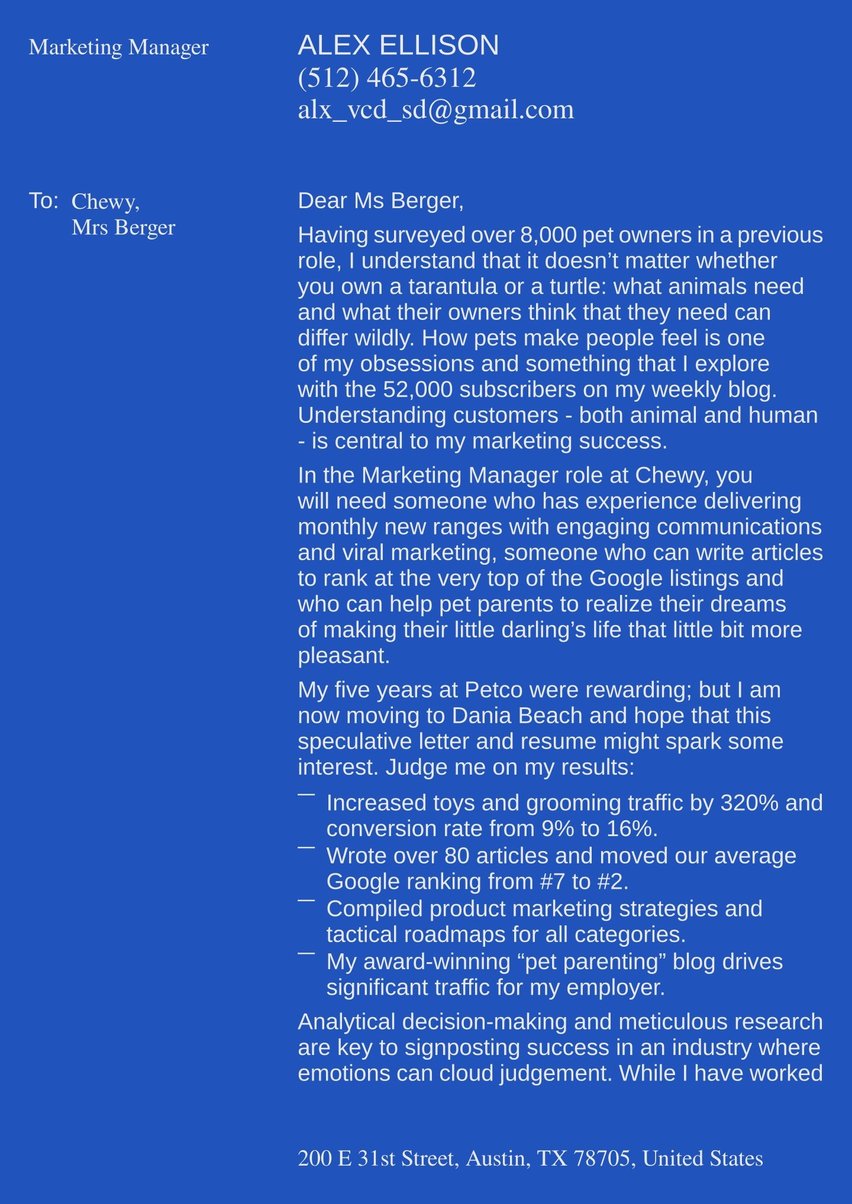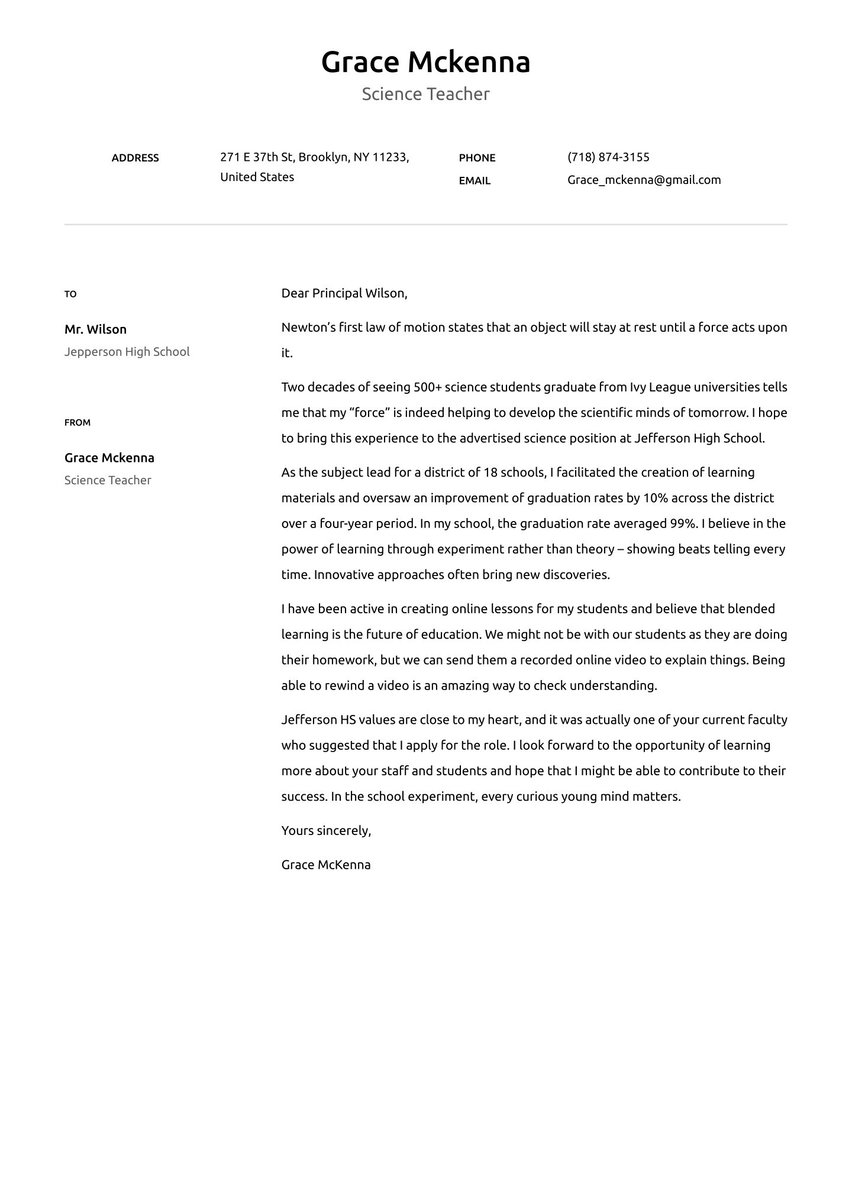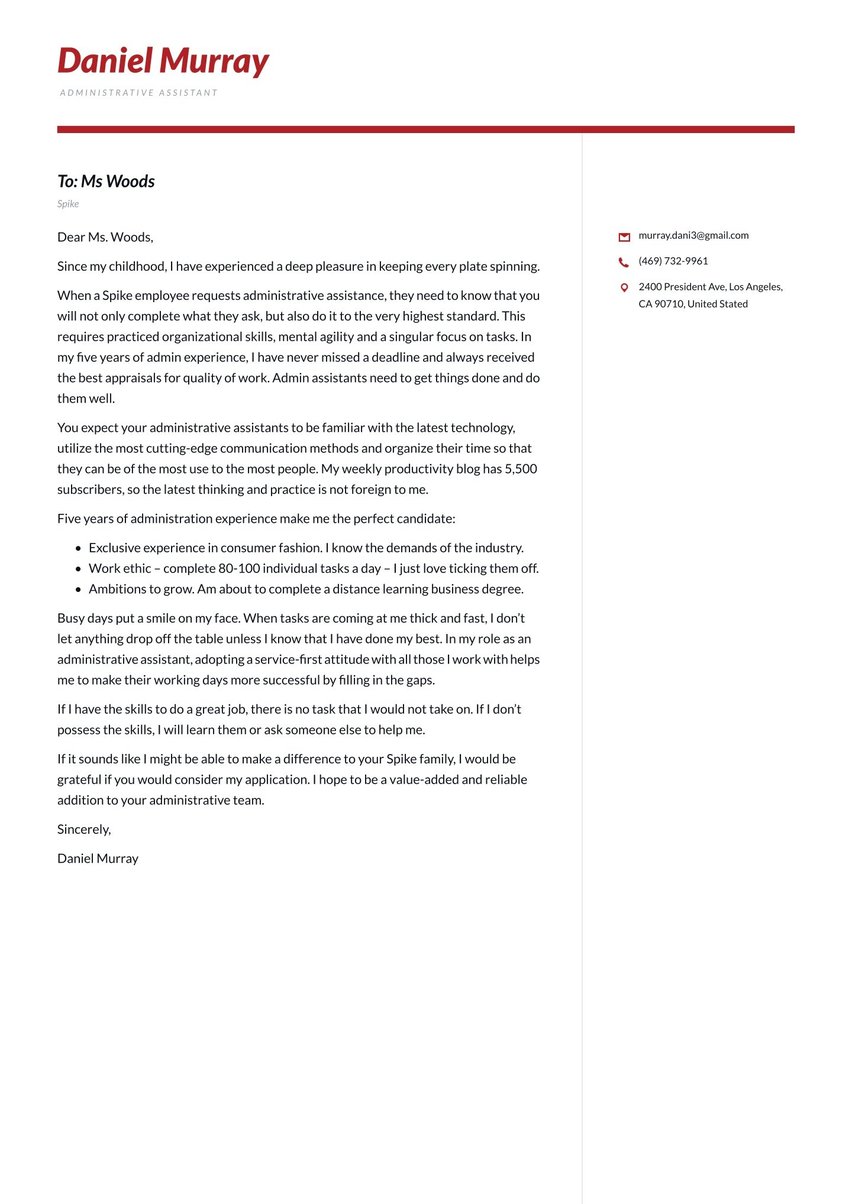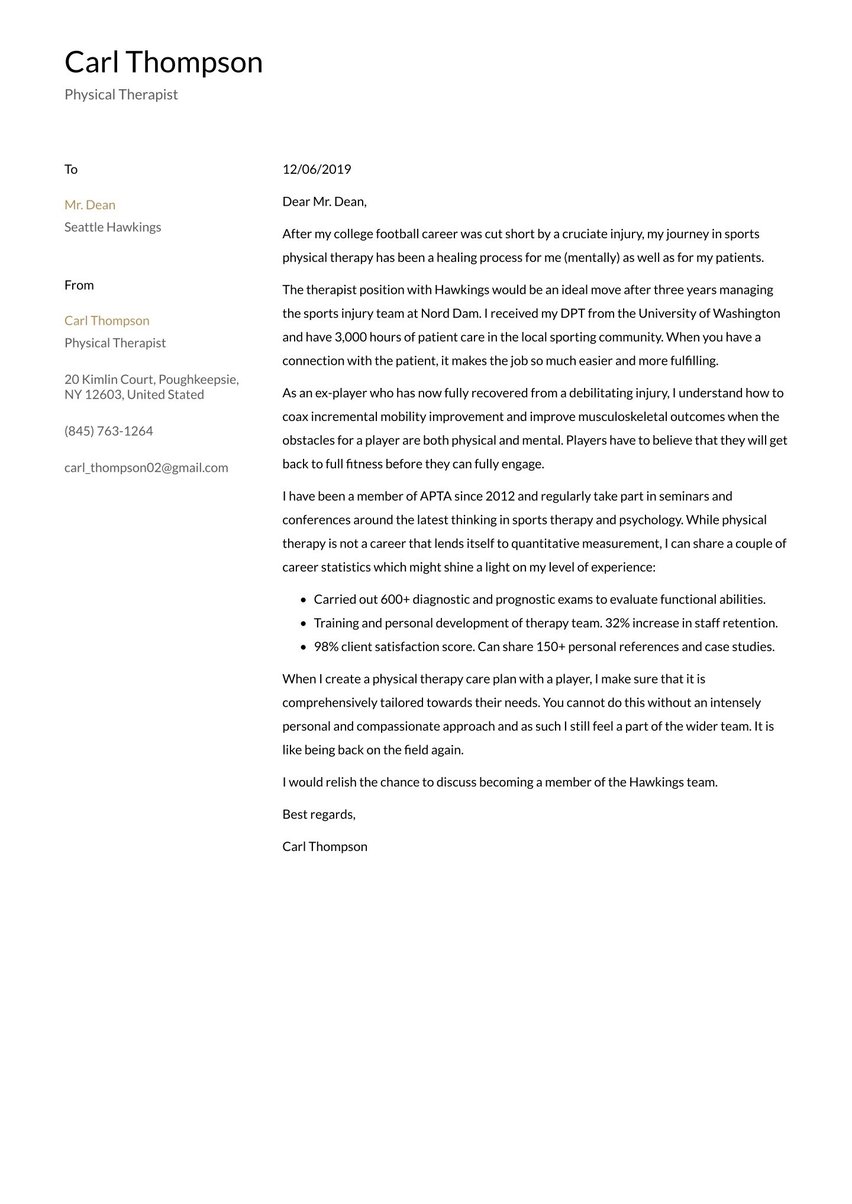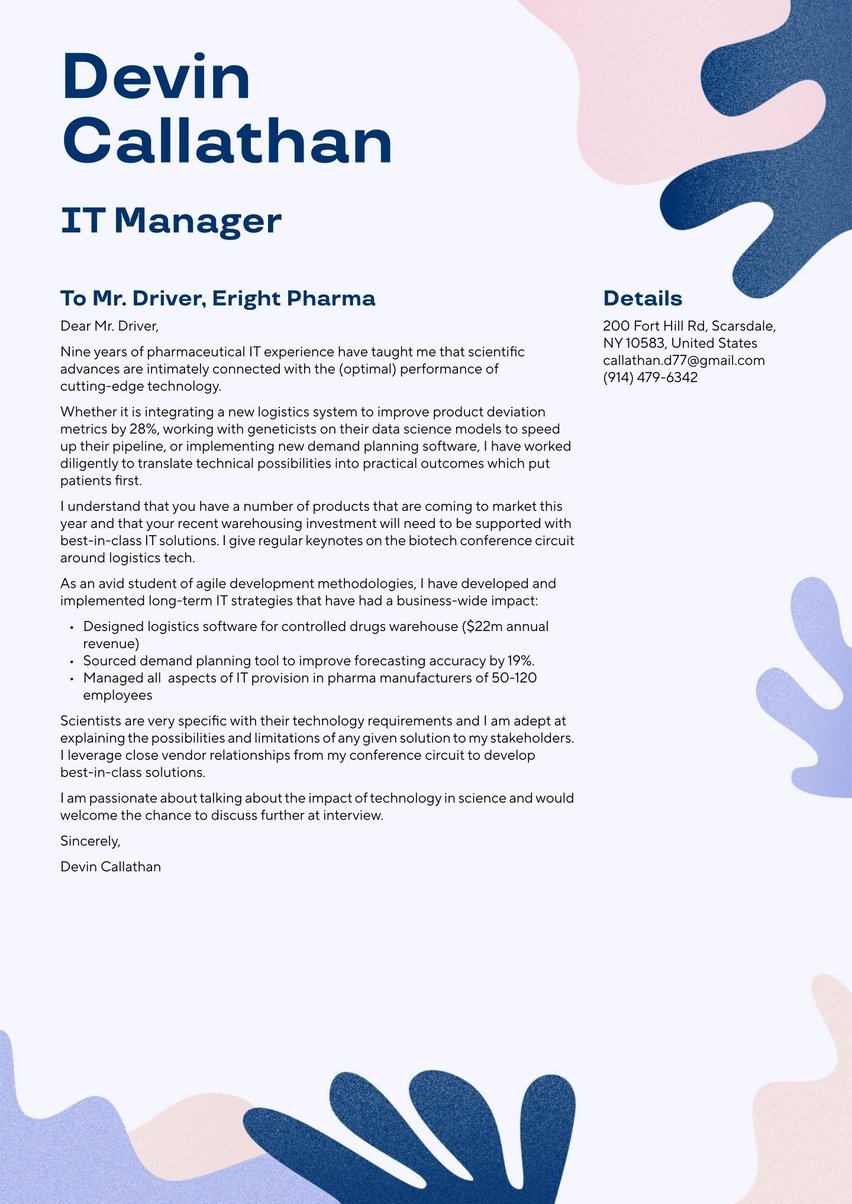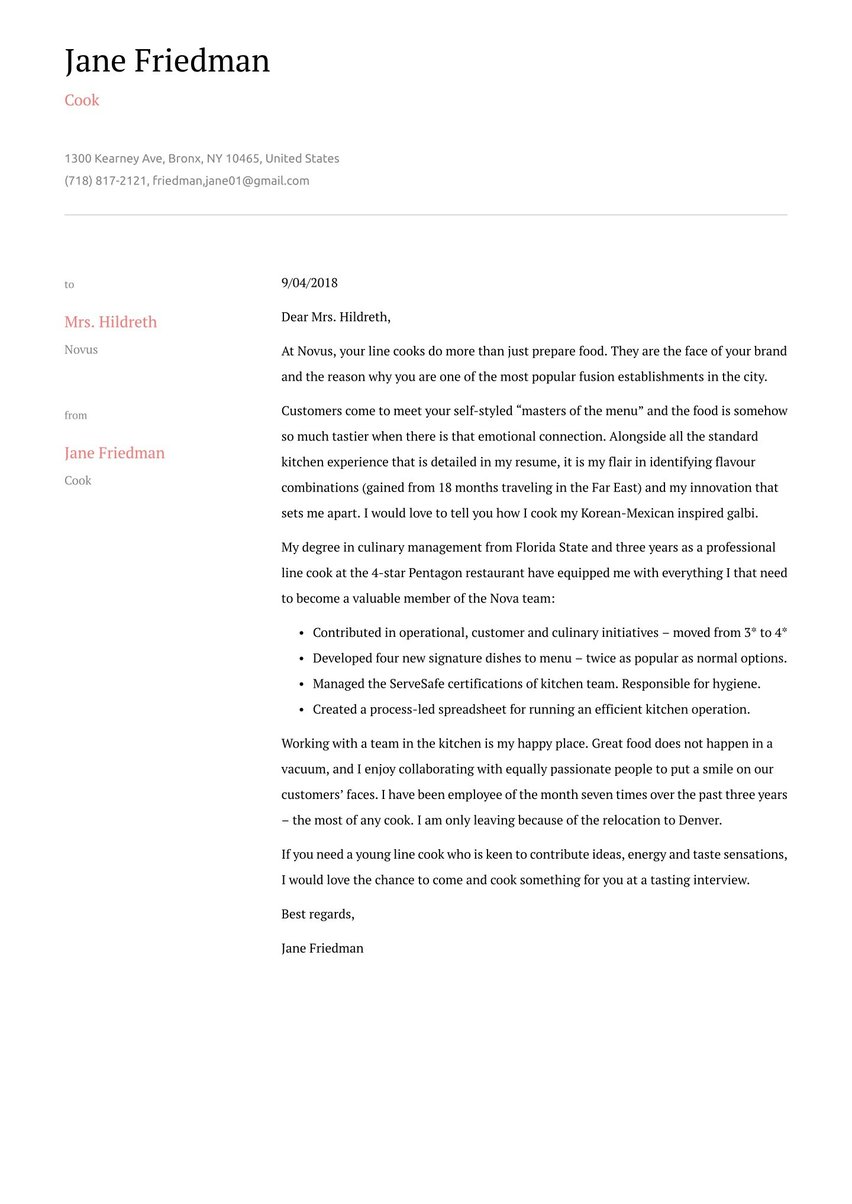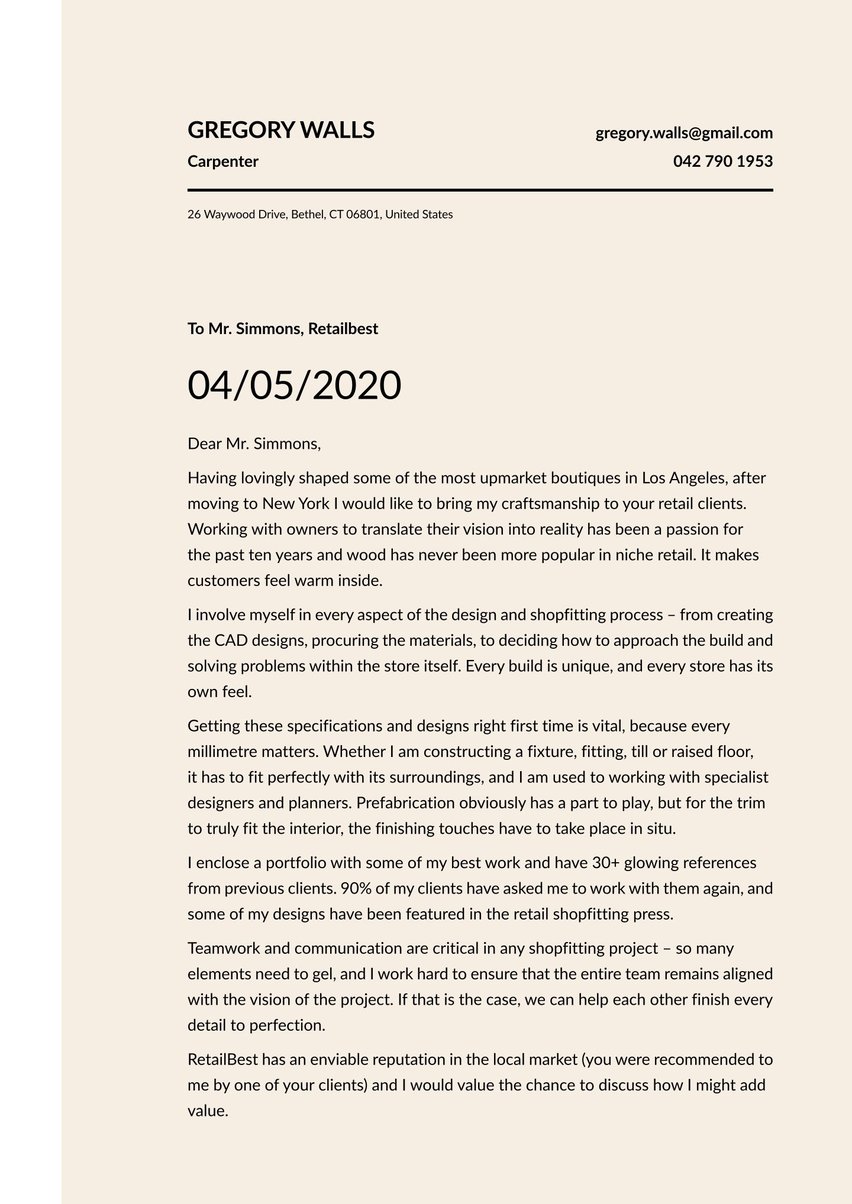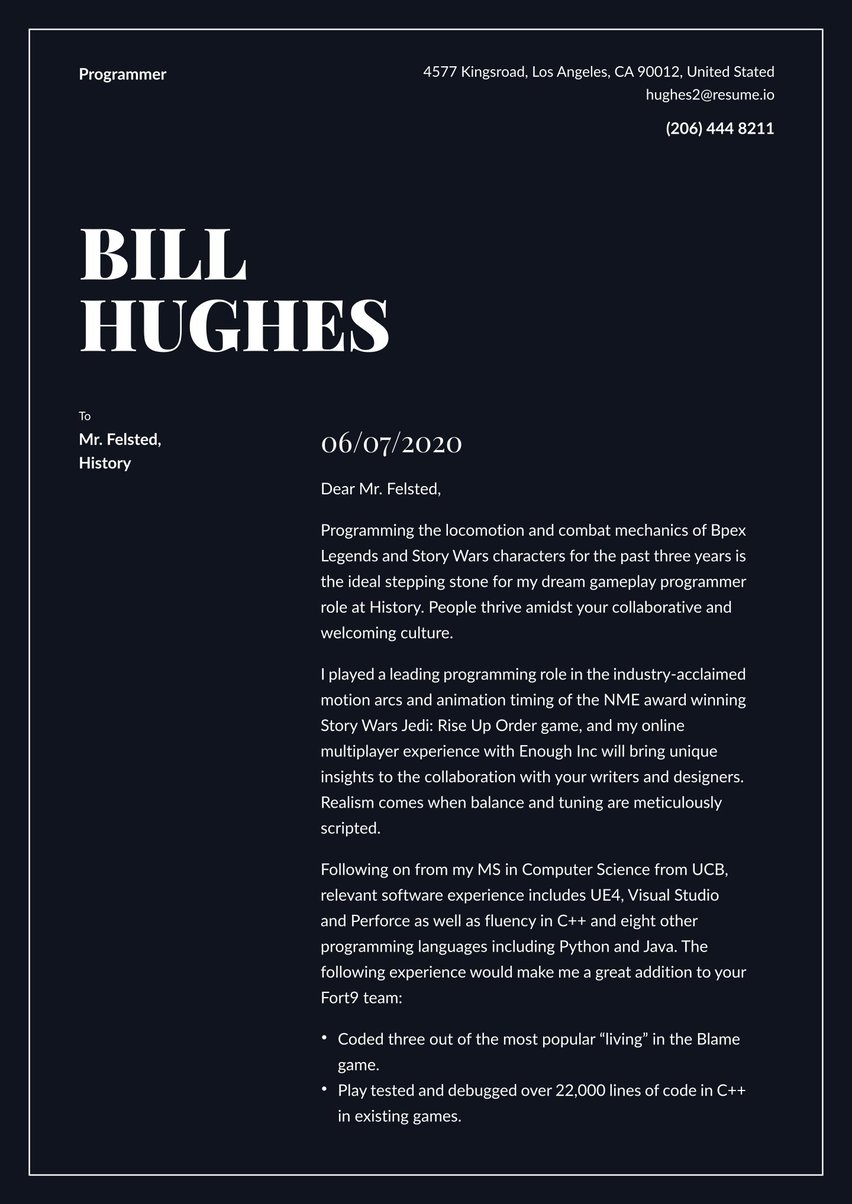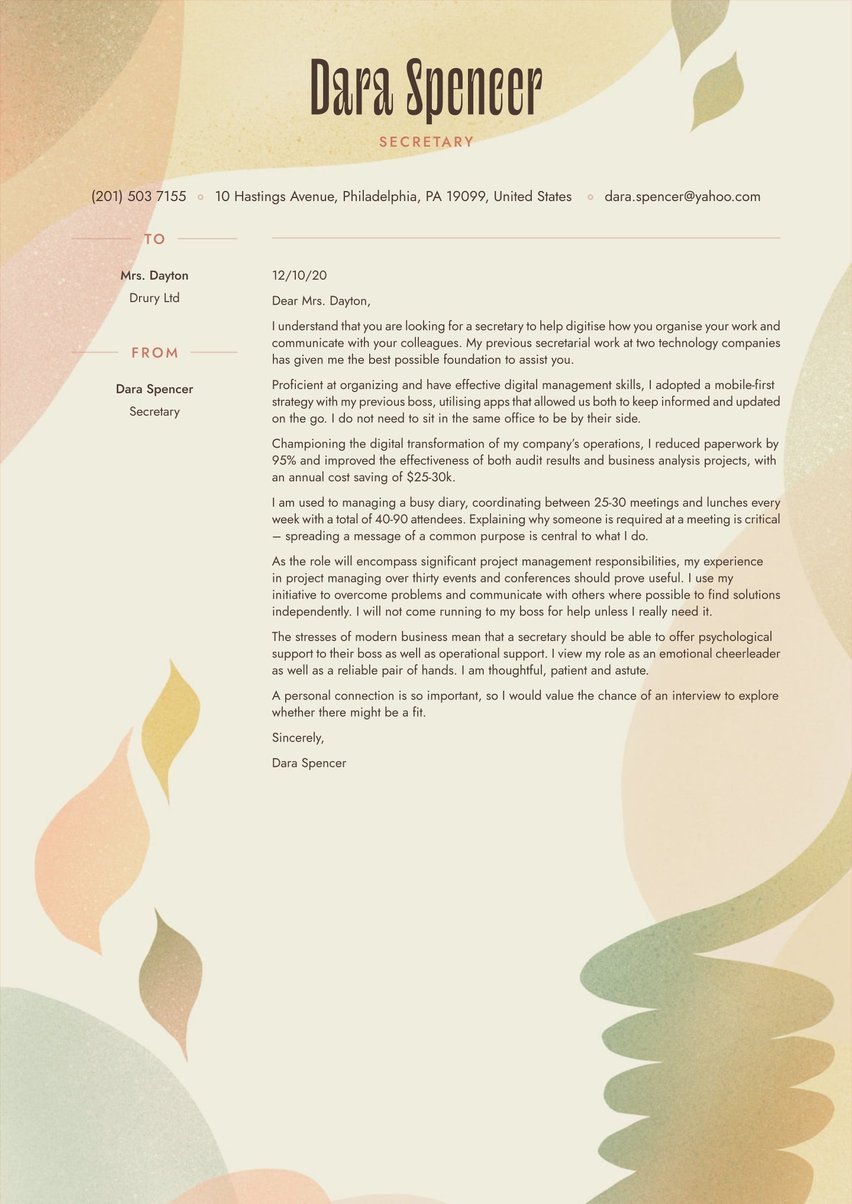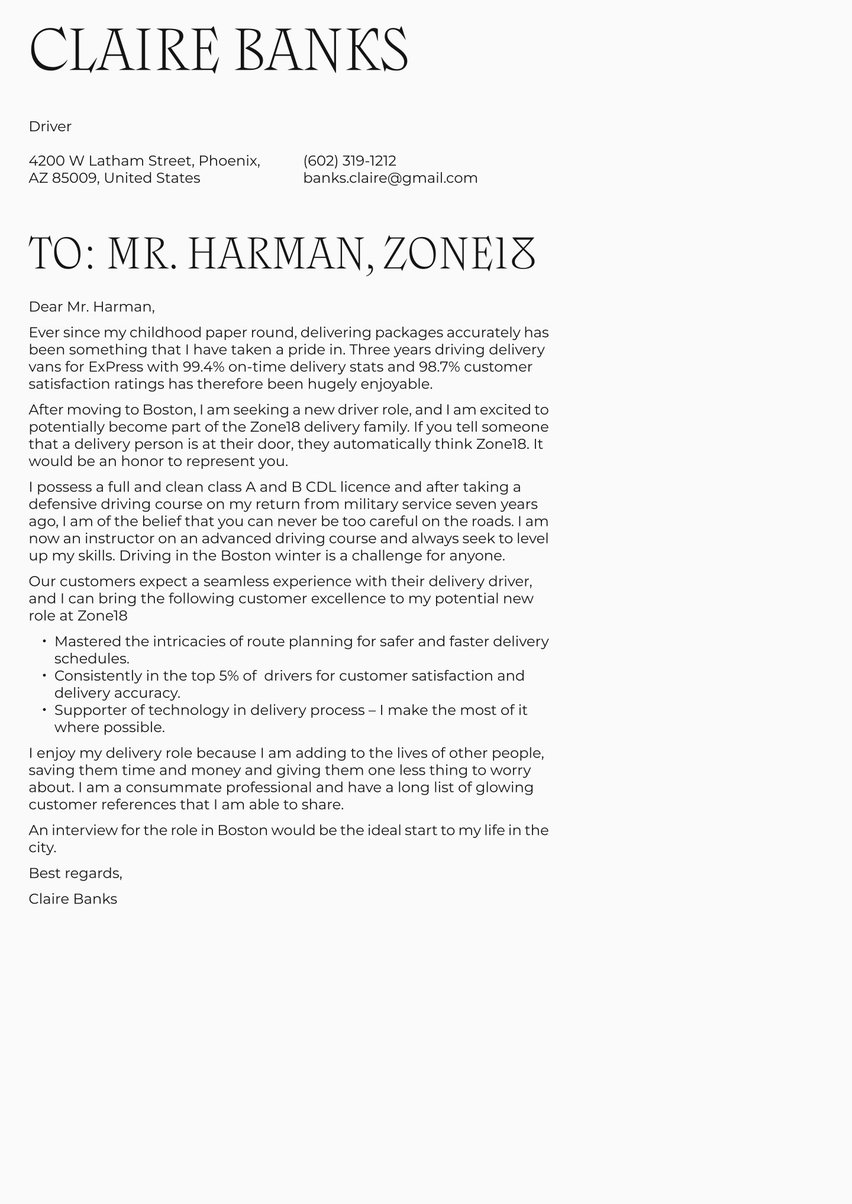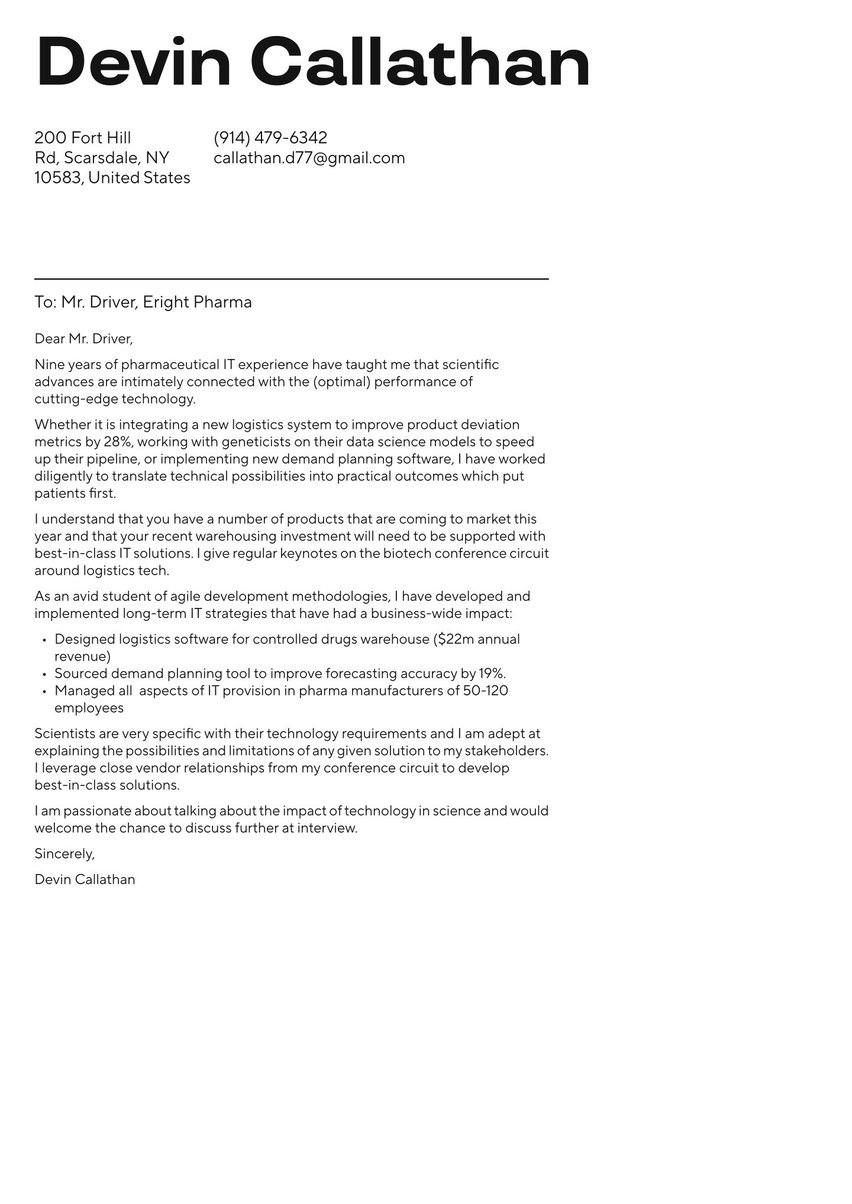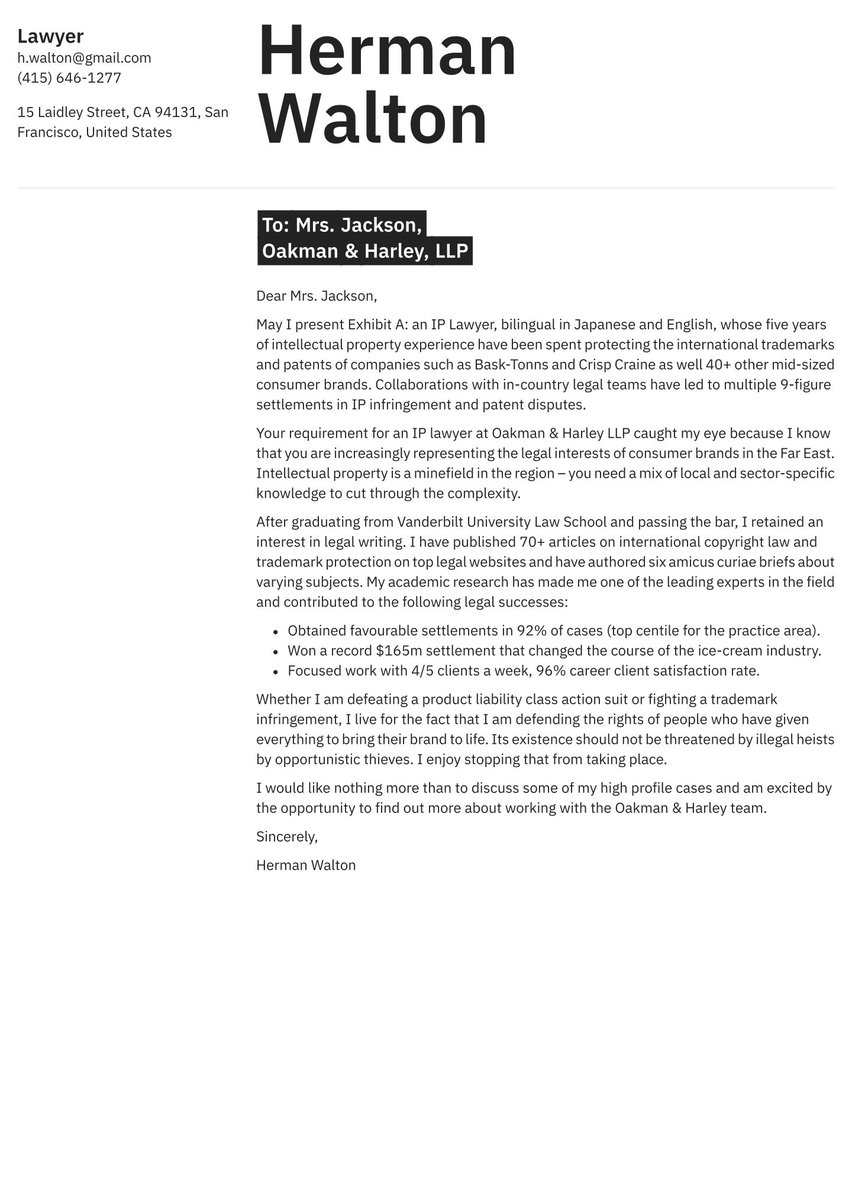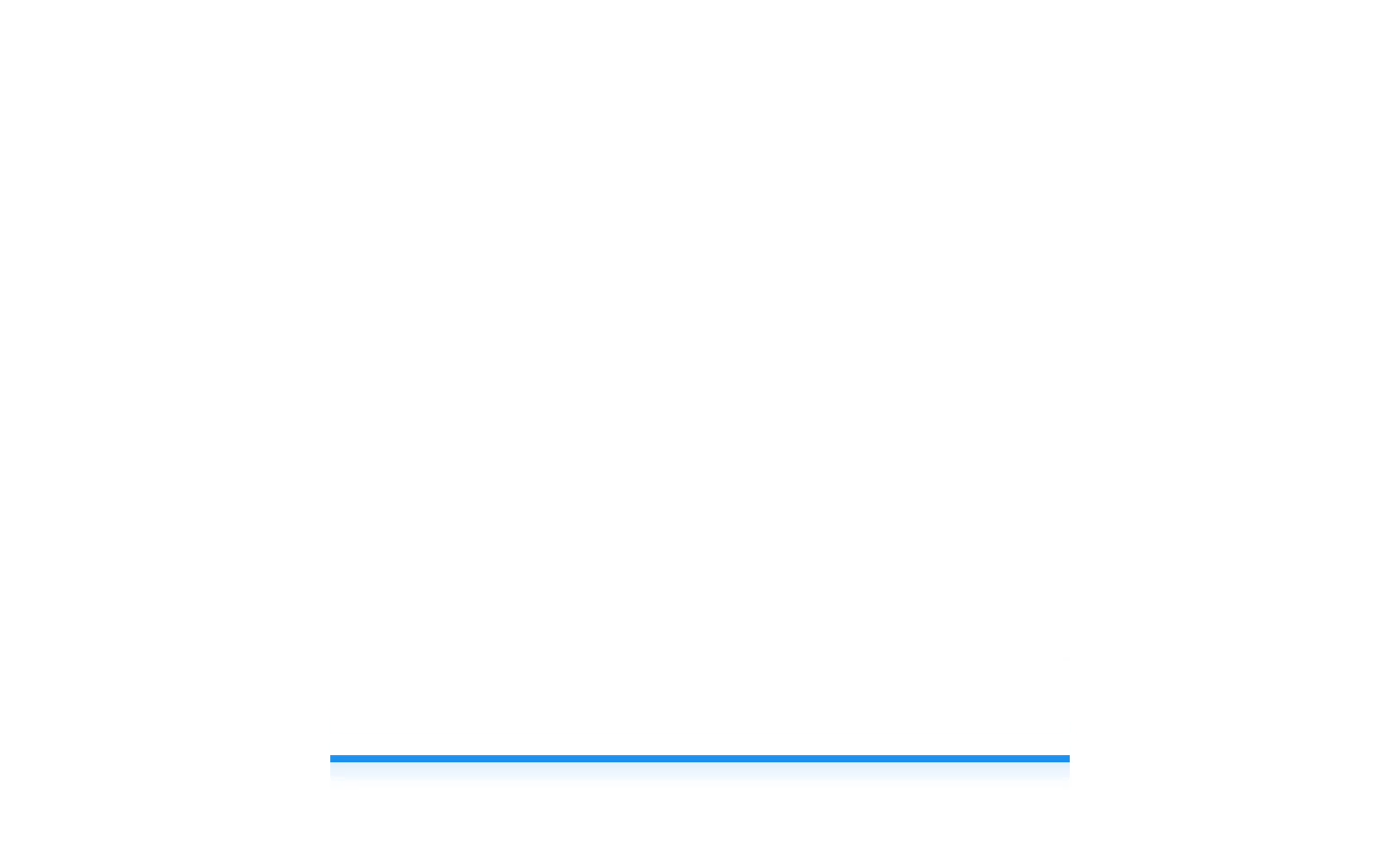Observing, assessing, and offering insights into a patient’s mental state is a fascinating branch of science. It is essential to treat a patient dispassionately – without letting personal influences cloud your judgment. Having said this, in the course of their work with others many psychologists develop deep levels of self-understanding. When they come to apply for a new role, the psychologist cover letter can open a window onto their inner world.
When your work is carried out inside someone’s brain, the nuance of the process is more important than the end result. The law of unintended consequences makes changing mindsets a fragile business. Psychologists can talk about their achievements in the resume, but the psychologist cover letter needs to touch on exactly how they go about their work.
Whether you are working in a corporate or healthcare setting, writing a cover letter is a matter of getting into the hiring manager’s head. You do that every day. Our many other cover letter examples and writing guides offer varying insights, but the advice for a psychologist is clear: share the tools and techniques that you will need to be successful in this specific role. In this psychologist cover letter guide, we cover:
- Choosing the best cover letter format to imprint on your hiring manager
- Composing the best introduction, header section and conclusion
- Which psychology stories to tell in your cover letter
- Mistakes to avoid in the psychologist cover letter
Best format for a psychologist cover letter
Psychologists are accomplished at helping others work out their stories, but when it comes to their own story it is sometimes hard to know how to structure their career narrative. As with every therapy session, a solid structure is the key to a satisfying conclusion. Show your future boss that you can structure your story in a compelling and relevant way – you won’t need to stray far from the normal cover letter format:
- The cover letter header
- The greeting / salutation
- The cover letter intro
- The middle paragraphs (body of the letter)
- The ending paragraph of your cover letter (conclusion and call-to-action)
The psychologist cover letter acts as the first layer of the onion. Begin the stories that you wish to tell during an interview and make the hiring manager curious about peeling back more layers. The depths of a psychologist’s mind are impossible to lay bare in a one-page cover letter, so be content to hint at the detail. Your future boss will hopefully be adept at reading between the lines.
Make sure that you include your specific qualifications for the role alongside your stories. Think about what sets you apart in your field. Do you have any certifications, research papers or conference speeches that could shine a light on your expertise? The theory of psychology is an ever-evolving science. Demonstrate your continuing curiosity with learning.
Our comprehensive cover letter guide offers more mundane (but important) insights into font style, size and length as well as other practical considerations when it comes to writing a psychologist cover letter. Have a look at the adaptable cover letter example below:
Dear Dr. Prowse,
After completing my master’s in child psychology, I immediately sought to specialize in school psychology, looking to improve the outcomes of young people across the Washington area. When you teach a child to be aware of their thoughts and feelings, you are preparing them for a balanced and mindful future.
Over the past four years, I have been a part of the district clinical psychology team working with special needs and disadvantaged students, mostly on a one-to-one basis. I have been instrumental in creating a framework for addressing mental health in education, dealing with addiction issues, and managing a peer-to-peer relationship counseling concept that won state-wide acclaim. Our end of year survey found that 84 percent of the children felt a significant improvement in their immediate attitude and future prospects.
I am an active participant on the national child psychology council and am passionate about improving behavioral and therapeutic approaches to our children’s mental health. My parental engagement scores of 96 percent are the highest in the state and are a testament to my practical and flexible approach.
In terms of clinical excellence, I developed a system of record keeping and measurement that served as a validation of our work. Children believed in what we were doing because we could show that it had improved the outcomes for previous participants. Our record keeping was digital, and we used the latest mobile technology to keep in touch with our most at-risk students. In this way, they felt that someone was there for them.
I understand the challenge that lies ahead with your school district, but it is with your disadvantaged students that I feel my expertise can make a difference. I enclose 17 personal references and would love to discuss further during an interview.
Sincerely,
Maria Halterley
Cover letter header
The header of a psychologist cover letter should be like the office or treatment room – immaculately presented and unobtrusive. It should contain the essentials of an application – full name, email, and mobile number, without attracting any undue attention with garish colors or in-your-face formatting.
Many psychologists will also opt to include their social media details – sharing knowledge online is increasingly popular and a great way of showcasing your professional brand.
You won’t need to include your full address or the address of your future employer (although you might choose to do so if you are being deliberately formal).
Cover letter greeting
Every psychologist should err on the side of formal in their interactions with patients and colleagues, so the standard “Dear Dr/Mr/Mrs/Ms Surname” will be fine to begin the psychologist cover letter. Make sure that you have double checked the spelling. Attention to detail is essential for any psychologist, so a brief phone call to check would be welcomed.
There is no excuse for a cold “To Whom It May Concern” cover letter greeting. Psychologists work on an intimate level with their clients, so show that you care enough to find out to whom it should be addressed. Here is a greeting from our cover letter sample:
Dear Dr. Prowse,
Cover letter introduction
The introduction needs to address the nature of the activity that you will be undertaking in your role. What sort of patients will you be working with? Share some background about relevant previous experience, ideally with context and outcomes. Which parts of the job description will others find hard to satisfy? How can you stand out from the crowd?
If those first couple of lines are mundane and average, you will lose the attention of the hiring manager in an instant. They won’t trust you to explore the heads of their patients if you cannot demonstrate that your head is also worth exploration. Make the introduction of your cover letter about how you made your unique difference to patients.
This adaptable psychologist cover letter example introduction offers one solution:
After completing my master’s in child psychology, I immediately sought to specialize in school psychology, looking to improve the outcomes of young people across the Washington area. When you teach a child to be aware of their thoughts and feelings, you are preparing them for a balanced and mindful future.
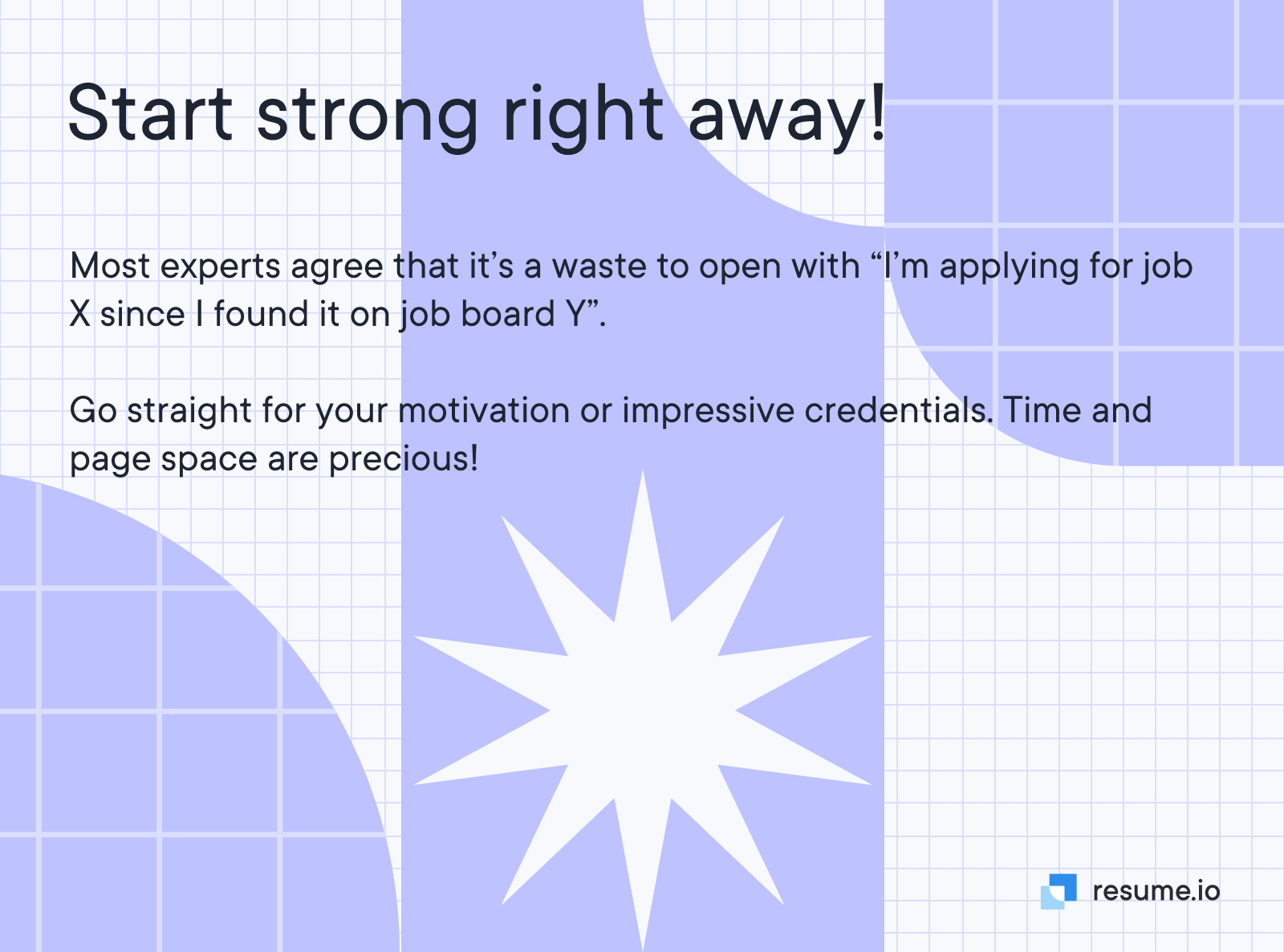
Cover letter middle part (body)
When you applied for this role, it is likely that a couple of previous patient cases floated to the front of your mind. While confidentiality is an essential consideration, telling these stories in a non-specific way is key to showing that you have the experience to do the same again. The body, or middle part of your cover letter is the place to do just that. Psychology is not about reinventing the wheel – our minds work in predictable ways.
The middle part of the psychologist cover letter should also share some of your personality. Every psychologist takes a slightly different approach to their patients, so give a sense of what it is like to sit opposite you. This will matter a great deal to your future employer.
How will you develop treatment programs, conduct experiments, control treatments and set goals with your patients? Psychology work is incredibly involved, so only pick those aspects of the role that you see as being especially challenging. Have a look at our cover letter sample:
While psychologists usually listen to the stories of their clients, it is critical to tell their story concisely in their cover letter. The STAR method will help. Outline the Situation and Task that you faced, share the Actions that you took and the Result that ensued. Be brief – you will be able to share more during an interview.
Over the past four years, I have been a part of the district clinical psychology team working with special needs and disadvantaged students, mostly on a one-to-one basis. I have been instrumental in creating a framework for addressing mental health in education, dealing with addiction issues, and managing a peer-to-peer relationship counseling concept that won state-wide acclaim. Our end of year survey found that 84 percent of the children felt a significant improvement in their immediate attitude and future prospects.
I am an active participant on the national child psychology council and am passionate about improving behavioral and therapeutic approaches to our children’s mental health. My parental engagement scores of 96 percent are the highest in the state and are a testament to my practical and flexible approach.
In terms of clinical excellence, I developed a system of record keeping and measurement that served as a validation of our work. Children believed in what we were doing because we could show that it had improved the outcomes for previous participants. Our record keeping was digital, and we used the latest mobile technology to keep in touch with our most at-risk students. In this way, they felt that someone was there for them.
How to close a psychologist cover letter (conclusion and sign-off)
Every psychologist knows the importance of imprinting a strong message at the end of any conversation. The close of their cover letter is no different. End with one last powerful story and then close with a call-to-action that shows you are interested to find out more about the role. Saying that you are looking forward to a potential interview will display the passion that every psychologist needs for the mentally demanding work ahead.
Here is a psychologist cover letter sample conclusion:
I understand the challenge that lies ahead with your school district, but it is with your disadvantaged students that I feel my expertise can make a difference. I enclose 17 personal references and would love to discuss further during an interview.
Sincerely,
Maria Halterley
Basic mistakes in a psychologist cover letter (and how to avoid them)
In psychology there is little that is black and white, but if you are not able to take the time to catch basic mistakes in your cover letter it is hard to imagine that you will have the attention to detail that is required when analyzing a complicated case. Take the time to double check amidst your excitement to send off the application.
- Spelling and grammar mistakes: If a psychologist cannot spell and punctuate a patient report, can they be trusted to do their work? Use an online grammar checker such as Grammarly to double check your work. Maybe also ask a professional colleague to check if you are hitting the right tone.
- Talking about responsibilities: The responsibilities of a psychologist are clear – talk about your achievements and how you went about helping your patients. Your future hiring manager knows what the job is, so don’t parrot the job description.
- Too conversational: You might be friendly and conversational with your patients to help them to lower their guard, but the psychologist cover letter should be suitably formal with its language.
- Poor formatting: An unattractive and disorganized cover letter sends the wrong message before the hiring manager reads a word on the page. Make the right first impression with a professionally-designed cover letter template.
Is patient confidentiality an issue in a psychologist cover letter?
Patient confidentiality is sacred - you should never compromise your patients for sake of telling a good story. It is perfectly possible to anonymize psychologist career stories enough to make them fully confidential. Don't cross that ethical line.
Key takeaways
- The cover letter should contain your most relevant psychology stories.
- Talk about how you helped your patients as well as the outcomes.
- Share your personality – paint a picture of what it is like to work with you.
- Quantify your stories with context where possible – psychology is about results.
Here are some other medical cover letter examples:


